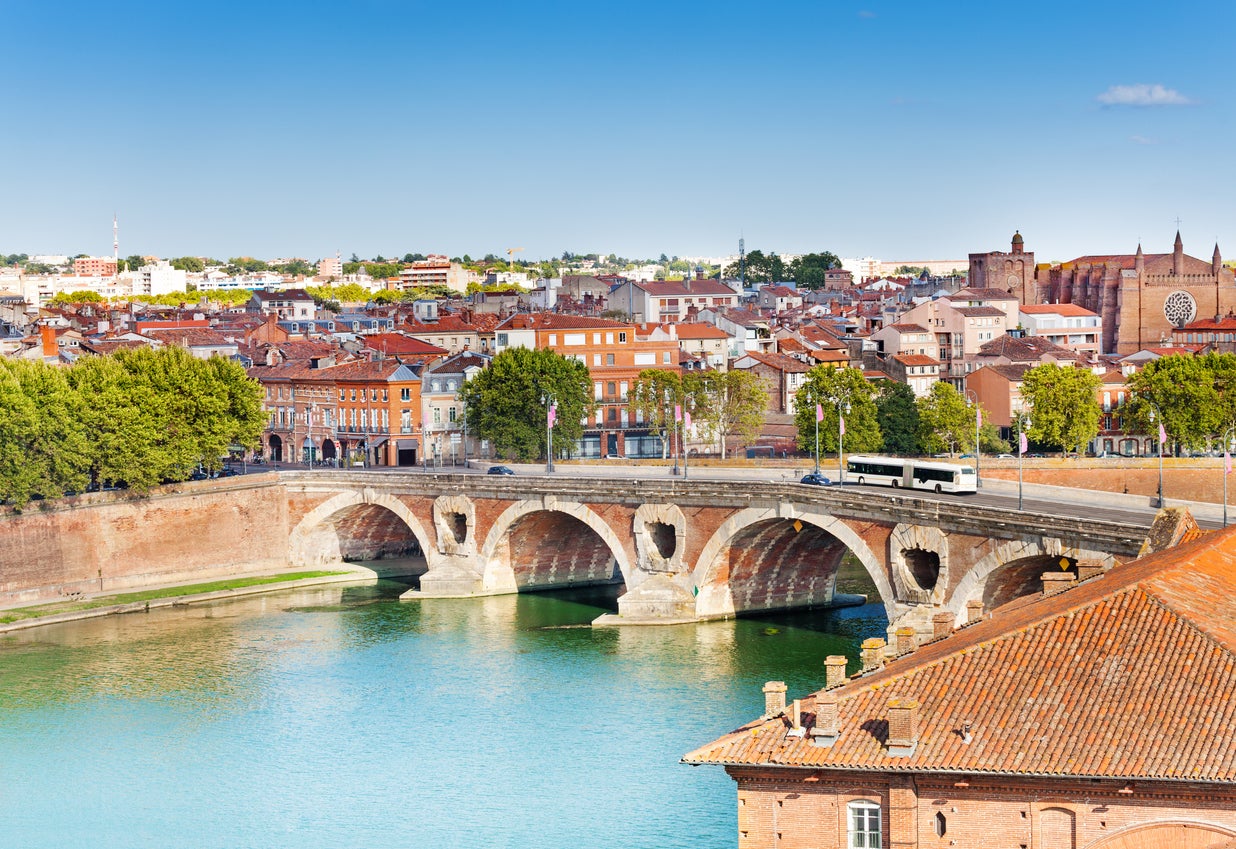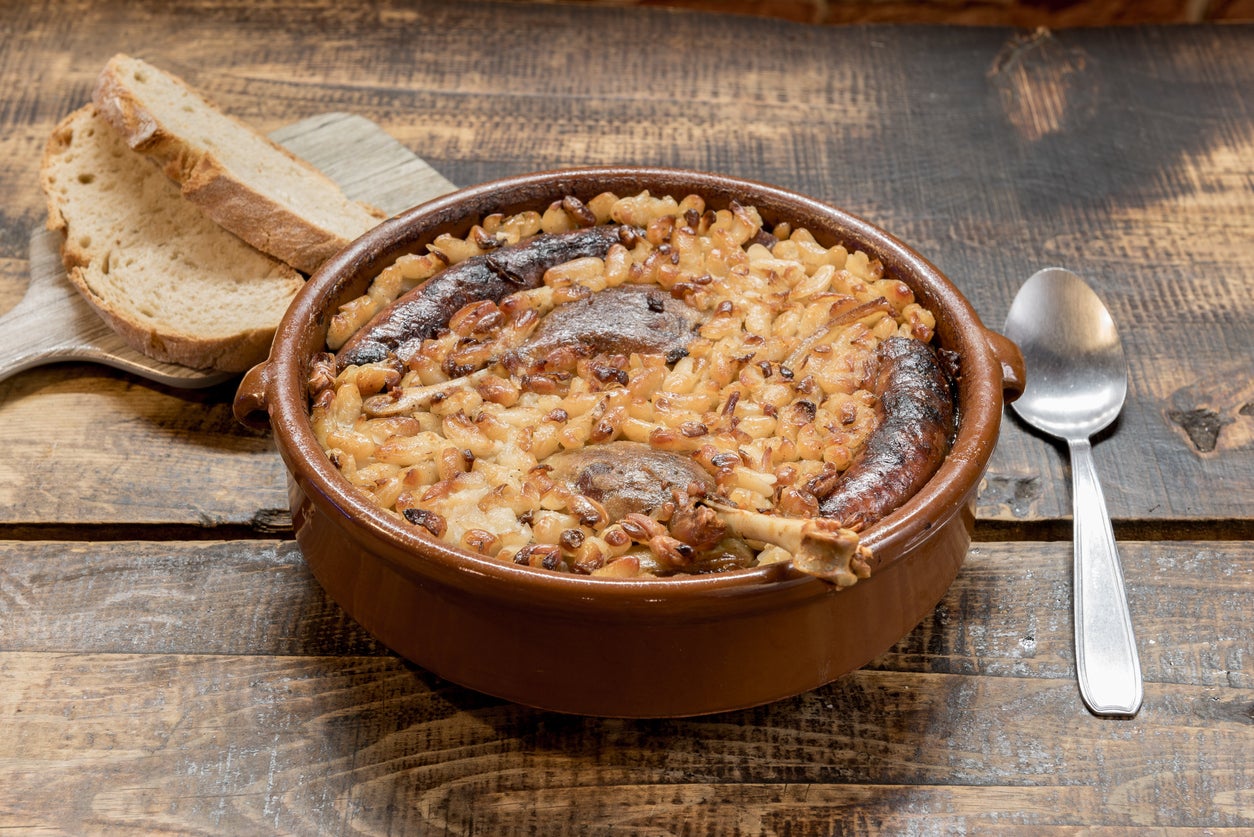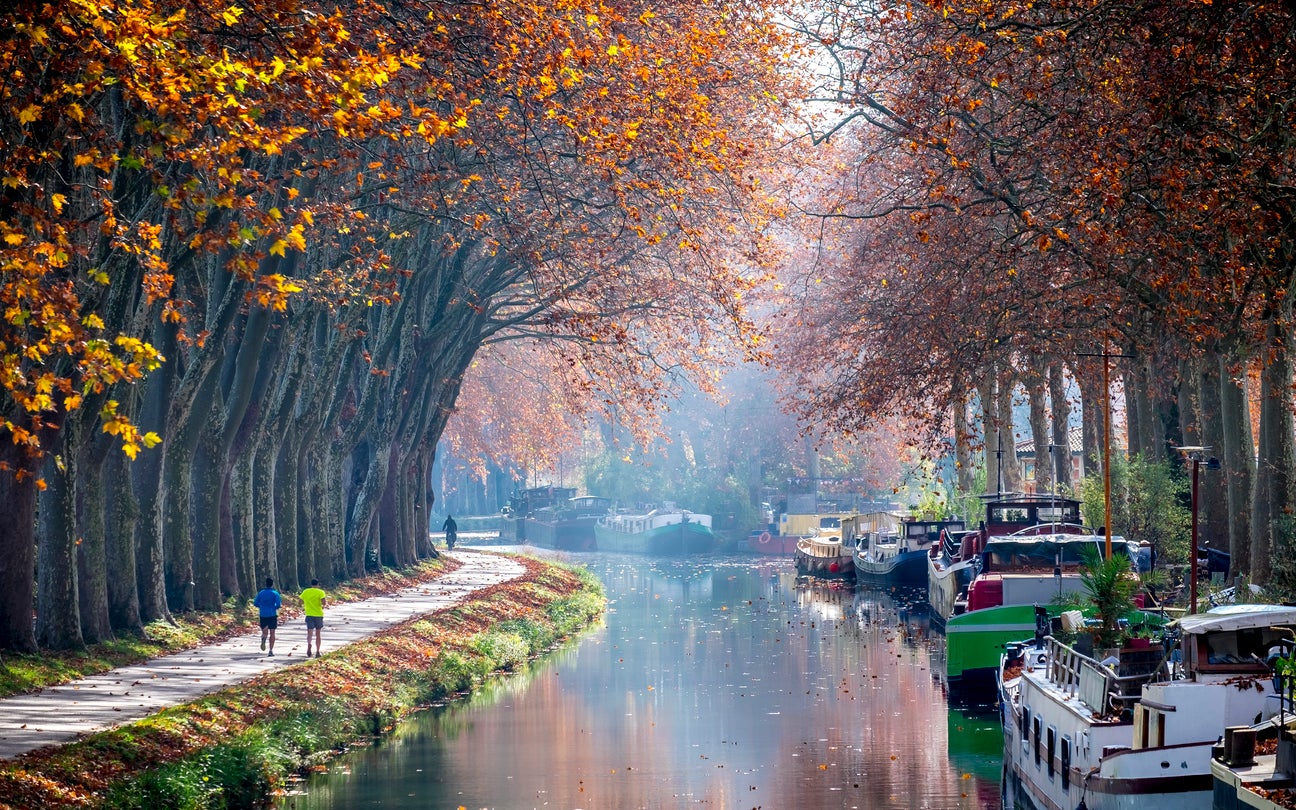The Independent's journalism is supported by our readers. When you purchase through links on our site, we may earn commission.
Toulouse city guide: Where to eat, drink, shop and stay in France’s underrated pink city
This rosy-hued, wandering-friendly city is packed with pretty architecture, warming stews and buzz-inducing wine bars – perfect for an autumn break, says Shilpa Ganatra

Your support helps us to tell the story
From reproductive rights to climate change to Big Tech, The Independent is on the ground when the story is developing. Whether it's investigating the financials of Elon Musk's pro-Trump PAC or producing our latest documentary, 'The A Word', which shines a light on the American women fighting for reproductive rights, we know how important it is to parse out the facts from the messaging.
At such a critical moment in US history, we need reporters on the ground. Your donation allows us to keep sending journalists to speak to both sides of the story.
The Independent is trusted by Americans across the entire political spectrum. And unlike many other quality news outlets, we choose not to lock Americans out of our reporting and analysis with paywalls. We believe quality journalism should be available to everyone, paid for by those who can afford it.
Your support makes all the difference.Toulouse might be known as la ville rose (the pink city) in honour of its coral-hued buildings but it’s built from the wealth of “blue gold”: the dye of pastel that attracted merchants to the city in the 16th century. Today, there’s an equally colourful atmosphere around its opulent architecture, thanks to its reinvention as an aeronautical hub and a busy student city – France’s fourth largest, where a quarter of its 470,000 residents are students.
That means there’s always something going on, whether on the banks of the River Garonne that divides the main part of the city from the trendy area of St Cyprien, or in the charming old town, with its rickety wooden buildings that are somehow still standing.
What to do
Look behind the city’s doors
Toulouse’s old town was built on the fortunes of its pastel merchants – now their large mansion houses have been converted to office and flats but the grandeur and ivy-clad courtyards remain. The unofficial line is that if the streetside doors to the courtyards are open, you can take a quick look around – this open house experience shows a tranquil side to the city you’d never have seen otherwise. Plus it’s a great excuse to wander around the pretty old town, with its lovingly restored wooden buildings.
Soak in the vibe at Place du Capitole
Place du Capitole square is Toulouse’s focal point. It’s where you’ll find bars and restaurants spilling over its perimeter, markets at the weekends, tango dancing on Sundays if you’re lucky, and the pink-tinged neoclassical facade of the Capitole, Toulouse’s city hall. Head up to its first floor to marvel at the ornate Salle des Illustres (Hall of the Illustrious), full of 19th century art.
Space out
Toulouse is a hub for the space and aeronautical industries, it was where Concorde was made and the A380 is made, so the Cité de l’Espace is a fitting exhibition/theme park. After the interactive exhibitions, check out an exact replica of the Mir space station, or sit in the astronaut’s seats on the actual Soyuz module for a feel of its cramped conditions – and the photo opp. Open 10am-5pm weekdays and 10am-6pm weekends; entry from €16 (£13.66p).
Become a crime fighter
It’s always fun to discover a city by way of a treasure hunt and on interactive adventure tour Robbery at the Capitole, it’s up to each team of super sleuths to venture across the city to recover a stolen cryptex [vault] containing the city’s founding papers. The experience is conducted in English and is €11-€20 per person depending on group size.
Where to stay
Hotel Des Beaux Arts is crammed with contemporary paintings, sculptures, and objets d’art that make for a bright and bold stay. There’s no compromise on location – it’s on the banks of Pont Neuf, with iconic river views from the upper floors. Doubles from €75, room only. hoteldesbeauxarts.com
Hotel Heliot is a 12-room, three-star hotel that’s full of charm. It’s traditional French in style and what it lacks in flair it makes up for in friendliness. It’s centrally located but tucked away down a side street for a relaxed stay. The only drawback is there’s no lift, so be prepared to haul your luggage upstairs. Doubles from €80.30, B&B. hotel-heliot.com
In the trendy area of St Cyprien, Parenthese Concept Room is for those who want to splash the cash. Its two loft suites are as swish as it gets in Toulouse, with decadent features such as circular beds and private hot tubs, plus sweeping views over the pink city. Suites from €259.60, room only. parenthese-concept-room.com

Where to eat
Traditional fare
Across Toulouse, you’ll find plenty of outdoor dining, come rain or shine. In summer, there’s an ever-changing line-up of restaurants ephemeres (pop-ups) serving inventive and often high-quality dishes. Mosey along the banks of the Garonne to find clusters of them.
Cassoulet – a slow-cooked stew, made with beans and duck legs or Toulouse sausages here – is the regional dish. You won’t find a heartier version than in Restaurant Emile, where a three-course meal costs about €42 a head, though the cosy La Mare aux Canards gives it a run for its money. Found in a frankly dodgy-looking alley, it’s worth braving.
A broader range of French fare is found at Le Pere Leon, a classic French brasserie with a few vegetarian options right by Place Esquirol. Save room for a café gourmand: coffee served with bite-sized tasters of their sweets.
In need of a quick pick-me-up? Make a beeline to Patisserie Conte, a busy, constantly clinking tea room where delicate French pastries are the star of the show.
Fine dining
Toulouse is home to six Michelin-starred restaurants, of which Le Cenacle is the firm favourite. In a plush 18th-century dining hall flanked by an enormous print of Caravaggio’s Supper at Emmaus, it offers both seasonal and signature menus, with pigeon pithivier and foie gras their speciality.
Yet there is a slew of gourmet restaurants bubbling under the starred layer. Du Plaisir a la Toque is a hidden gem and Le Perche Pinte is relaxed experience with a focus on sustainable and organic produce – a three-course dinner here is somehow only €30. A local favourite is Place Mage, whose refined dishes are matched by a carefully curated wine list.
Where to drink
You’ll be surrounded by great wines – hardly a surprise, since Toulouse is near the Languedoc wine-growing region and, well, in France. Connoisseurs will adore N5 Wine Bar: voted the best wine bar in the world in 2017, it’s a jostling load-a-card joint where you can taste small measures of rare bottles. For a more relaxed ambience, try Nabuchodonosor and La Cave Se Rebiffe, or Barrique & Bourrique offers a lively atmosphere and broader range of drinks. Don’t be surprised to find tapas on the menu in bars – it’s where Toulouse’s proximity to Spain comes into play.
For speciality coffee, head to Cafe Cerise, which roasts its coffee on-site (and serves brunches and lunches). For tea, try L’estaminot in St Cyprien – find a table between their stacks of secondhand books and settle back.

Where to shop
The main shopping centre is Galeries Lafayette but Toulouse is also big into concept stores: boutiques that sell a handpicked selection homewares, clothes, gifts, stationery and more. Just try leaving Atypique without a purchase. Honourable mentions go to Bobine Par Maison B and Retropolis (which also sells vintage and secondhand goods).
Jewellery lovers should take a peek at Adepte, where the house designs complement the range of sophisticated accessories on sale. For those with time, Fifi Jolipo sells component jewellery parts, with tools available to make your own bespoke trinkets on-site.
For foodstuffs, the stalls of Victor Hugo Market can’t be beaten. It’s home to premium produce, much of which is locally sourced. Le Comptoir de Mathilde concentrates on fine foods – truffle oils, pate, biscuits and chocolate. All the delicious stuff.
Architectural highlight
The unique Cathedrale Saint-Etienne began as a 13th century southern Gothic church. Things got interesting in the 16th century when it was extended in a northern Gothic style, resulting in a marvellous mish-mash of a monument (it remains unfinished, for extra chaos).
Nuts and bolts
What language do they speak?
French, although street names are in Occitan, too.
Should I tip?
5-10 per cent.
What’s the time difference?
An hour ahead.
How should I get around?
The central area is walkable (and largely pedestrianised), and the tram and city bikes (VeloToulouse) are great options for going further out.
What’s the best view?
The rooftop terrace of Ma Biche sur Le Toit gives a gorgeous rooftop view of the city, especially at sunset.
Insider tip?
Look up at the portico ceilings at Place Capitole. You’ll see drawings of Toulouse’s story, starting with the martyrdom of Saint Sermin and ending with a mirror.
Getting there
Trying to fly less?
You can get to Toulouse from London by train in around eight hours. Take the Eurostar to Paris Gare du Nord (two hours, 15), then the Metro to Montparnasse-Bienvenue, changing for Paris Montparnasse station. From here there’s a TGV service to Toulouse Matabiau (four hours, 20).
Fine with flying?
Ryanair, BA and easyJet all have direct flights.
Join our commenting forum
Join thought-provoking conversations, follow other Independent readers and see their replies
Comments